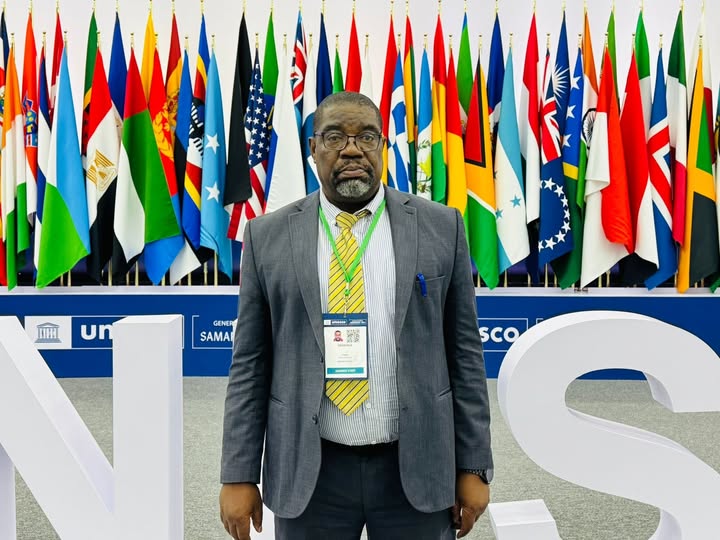Zambia Backs Global Push to Update International Standards for Teachers
Zambia has thrown its weight behind a global effort to revise two key international instruments that define the rights, responsibilities, and professional standards of teachers worldwide.
Speaking at the 43rd Session of the UNESCO General Conference in Samarkand, the Zambian delegation joined other Member States in supporting the review of the ILO/UNESCO Recommendation concerning the Status of Teachers (1966) and the Recommendation concerning the Status of Higher Education Teaching Personnel (1997).
The two documents set international benchmarks for teacher preparation, recruitment, employment, professional development, and working conditions.
Delivering Zambia’s position, Dr Charles Ndakala, Director of the Curriculum Development Centre under the Ministry of Education, stressed that global challenges had changed dramatically since the Recommendations were adopted, making reform both urgent and necessary.
He cited a number of concerns affecting teachers globally, including rising cases of violence against educators, the growing cohort of teachers serving in emergency and crisis settings, and widening digital skills gaps that have made it harder for many teachers to adapt to modern classroom demands.
Dr Ndakala also drew attention to gender disparities in the education sector, noting the low representation of women in secondary schools, Technical and Vocational Education and Training (TVET) institutions, and in school leadership.
He further warned that inadequate female participation in Science, Technology, Engineering and Mathematics (STEM) education risked reducing the number of girls pursuing science-related careers.
“Many developments have transformed the teaching landscape in ways we did not anticipate, leaving teachers with minimal support to navigate this challenging environment,” he said, pointing to emerging technologies, artificial intelligence, and blended learning systems as factors rapidly reshaping education.
Dr Ndakala also expressed Zambia’s support for the provision of extrabudgetary resources to UNESCO’s education sector, stating that additional funding would help improve teacher welfare globally.



